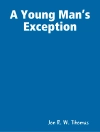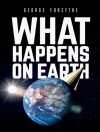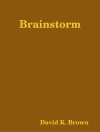In ‘The Country of the Blind, and 32 Other Stories, ‘ H. G. Wells masterfully explores the intricacies of human experience through a collection of thought-provoking tales. Each narrative reflects Wells’s unique literary style that seamlessly combines elements of science fiction, fantasy, and social commentary. The stories delve into themes of perception, society, and the human condition, often with a twist that challenges the reader’s understanding of reality. This original unabridged edition preserves the authenticity of Wells’s vision, providing a rich tapestry of 19th- and early 20th-century anxieties and aspirations, all illuminated by his characteristic wit and insight. H. G. Wells, often hailed as the father of modern science fiction, was deeply influenced by the rapid technological advancements of his time and the societal changes they prompted. His own background in social reform and interest in the possibilities of science served as fertile ground for the ideas expressed in these stories. Wells’s experiences as a teacher and his keen observations of human behavior fostered an ability to navigate both the extraordinary and the ordinary, allowing him to depict a vast range of experiences with empathy and depth. This collection is highly recommended for readers seeking to engage with the imaginative brilliance of one of literature’s pioneers. Whether you are a long-time fan of Wells or new to his work, these stories offer a captivating glimpse into the complexities of civilization and human nature, encouraging reflection long after the final page is turned.
เกี่ยวกับผู้แต่ง
H.G. Wells, born Herbert George Wells on September 21, 1866, in Kent, England, emerged as one of the ‘fathers of science fiction, ‘ profoundly influencing literature with his foresight and imaginative narratives. A writer of prodigious talent, he infused his works with social commentary and speculative philosophy, a characteristic that distinguished him from contemporaries. Wells’s early career saw him as a teacher and student of biology, a background that certainly informed his scientific musings in fiction. His authorial debut commenced with popular scientific texts but soon evolved into fantastical literature. Arguably, Wells’s most enduring contributions to the literary canon encompass novels like ‘The War of the Worlds, ‘ ‘The Time Machine, ‘ and ‘The Invisible Man.’ However, his short fictions, collated in volumes such as ‘The Country of the Blind, and 32 Other Stories, ‘ typify his dexterity in crafting parables rich in metaphor and allegory. This unexpurgated collection exemplifies his narrative range, from the eponymous story depicting a society where blindness is the norm to tales that shimmer with esoteric and dystopian tapestries. Though he passed away on August 13, 1946, Wells’s legacy as a literary trailblazer and a visionary of social and scientific realms endures. His work not only entertained but also challenged his readers to ponder the trajectory of humanity in the face of technological and societal upheavals.












